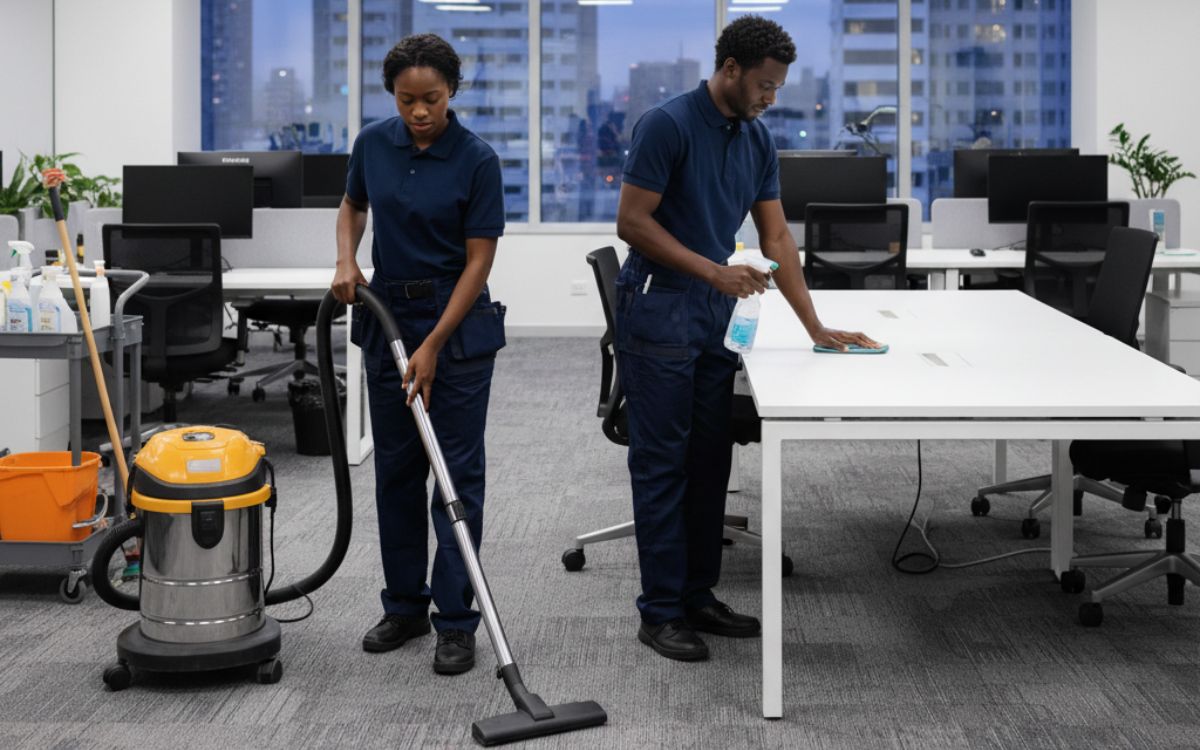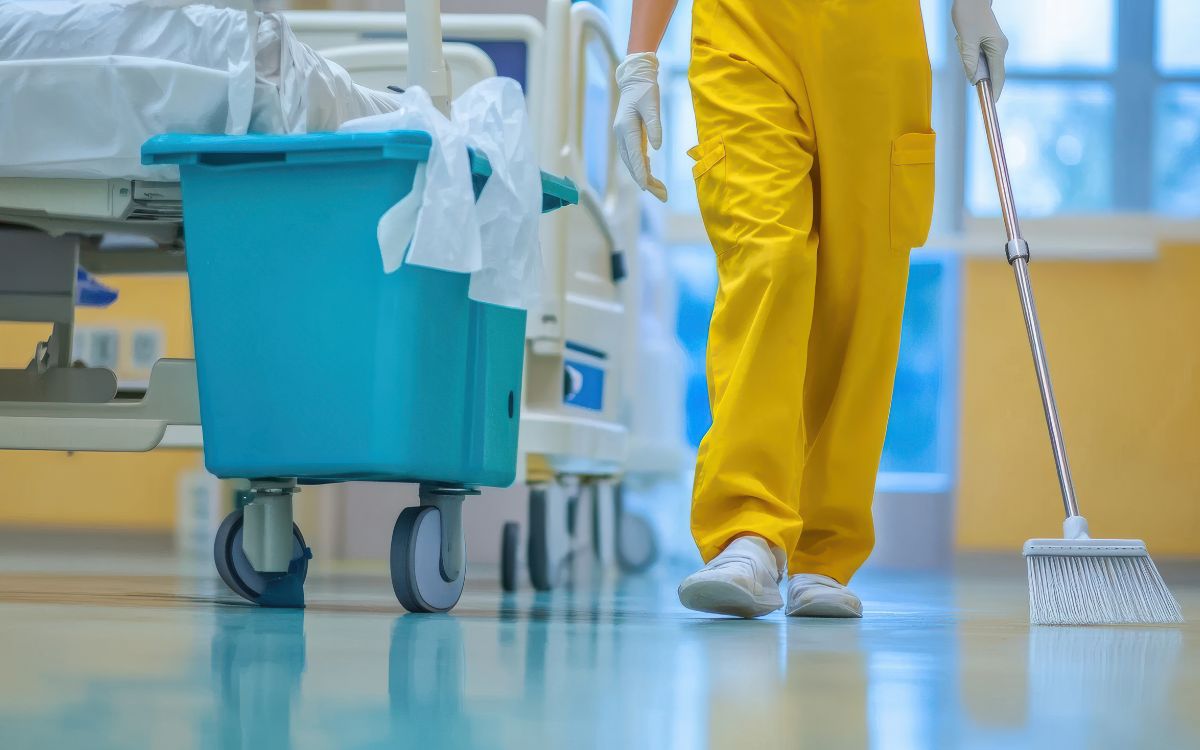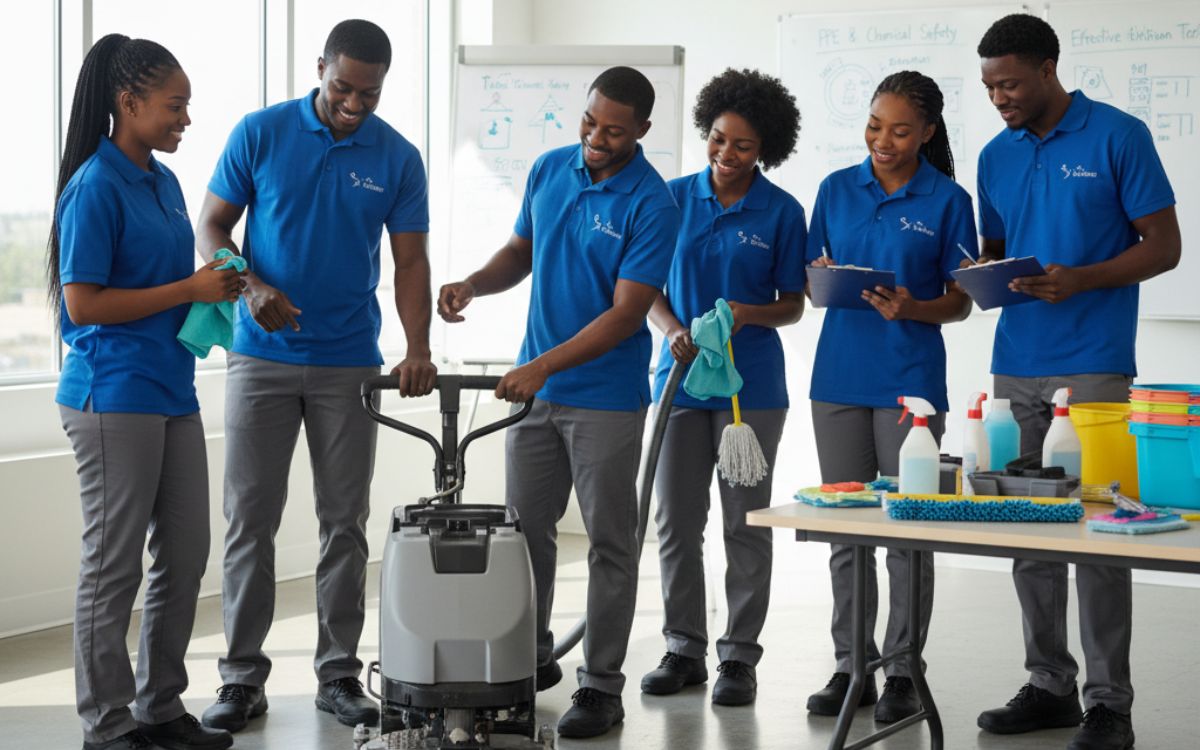The Occupational Health and Safety Act (OHS) is a crucial piece of South African legislation that provides a legal framework to protect employees and visitors in every workplace. Adhering to OHS Act regulations is non-negotiable for businesses. They set specific, legal standards for hygiene and safety that directly impact your operations and bottom line.
A clean workspace reduces the risk of accidents, like slips and falls, and helps prevent the spread of germs, which boosts employee well-being and productivity. A professional cleaning partner is essential for meeting these strict regulations and ensuring compliance. We’ll explore the key regulations, how to simplify your compliance, and the serious risks of non-compliance.
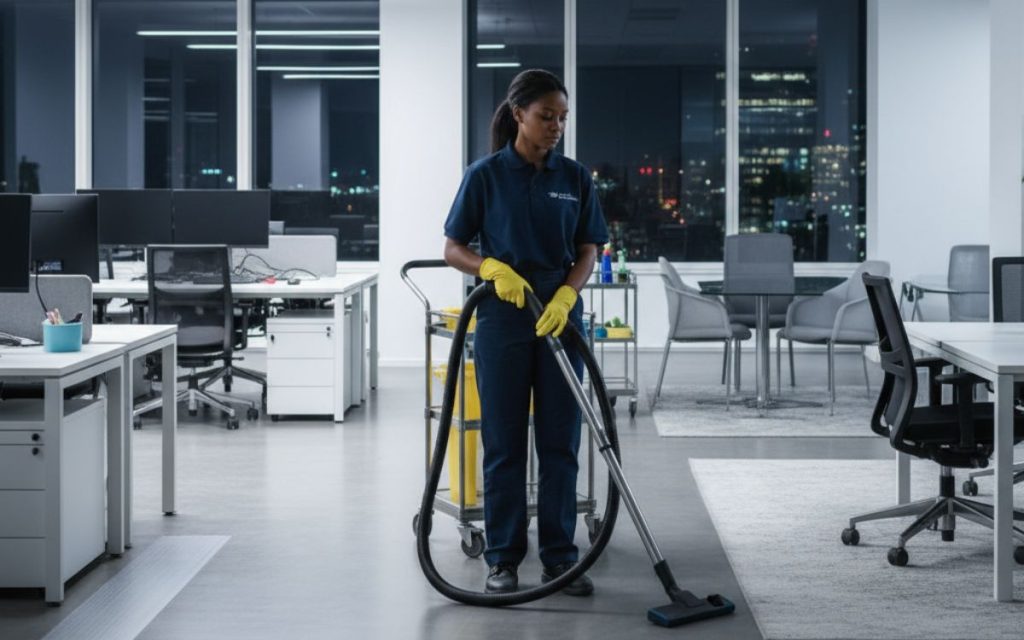
OHS Act Standards related to Workplace Cleaning
The Occupational Health and Safety (OHS) Act includes specific regulations that directly impact how you manage cleaning in your workplace. Meeting the following seven standards is a legal requirement for every business.
- Mandatory Cleanliness: The Facilities Regulations, 1990, require employers to keep all rooms and facilities clean and hygienic. This includes ensuring change rooms, kitchens, and other facilities are well-maintained. It also means keeping these areas free from hazards like leaks or standing water. A clean facility prevents slips and trips, which are common workplace injuries.
- Good Housekeeping: Good housekeeping is a core principle of the OHS Act. It requires you to keep all workstations, floors, and communal areas clean and tidy. This rule helps prevent many common hazards. For example, a clear walkway prevents someone from tripping over loose items or cables. This simple act of keeping things organised reduces workplace injuries.
- Personal Protective Equipment (PPE): Employers must provide appropriate PPE to their cleaning staff. This equipment protects them from chemical and physical risks. For example, cleaning staff should wear gloves and aprons when handling chemicals. This requirement is in place to safeguard the health of your employees.
- Hazardous Chemicals: The use of cleaning chemicals is highly regulated. You must correctly handle, store, and use all cleaning chemicals. This includes complying with SANS standards for cleaning products. Improper storage can lead to spills and exposure, which poses a serious risk to everyone in the building.
- Employee Training: Employers have a duty to train their cleaning staff. This training must cover safe cleaning procedures, the proper use of equipment, and emergency cleaning protocols. For example, staff must know how to safely use an industrial floor scrubber or what to do in case of a chemical spill. This training is crucial for minimising all workplace risks.
- Waste Management: Proper waste management is another key requirement. You must have clear procedures for cleaning contaminated PPE and other waste materials. This is especially important in settings where there are Hazardous Biological Agents (HBA). Proper disposal of this waste prevents contamination and the spread of disease.
- Adherence to Standards: Compliance also extends to the products you use. Adherence to specific SANS standards for cleaning materials, like solvent detergents, ensures the safety and quality of your cleaning supplies. Using certified products means you are using materials that are proven to be effective and safe. This gives you peace of mind that you are meeting a high standard of care.
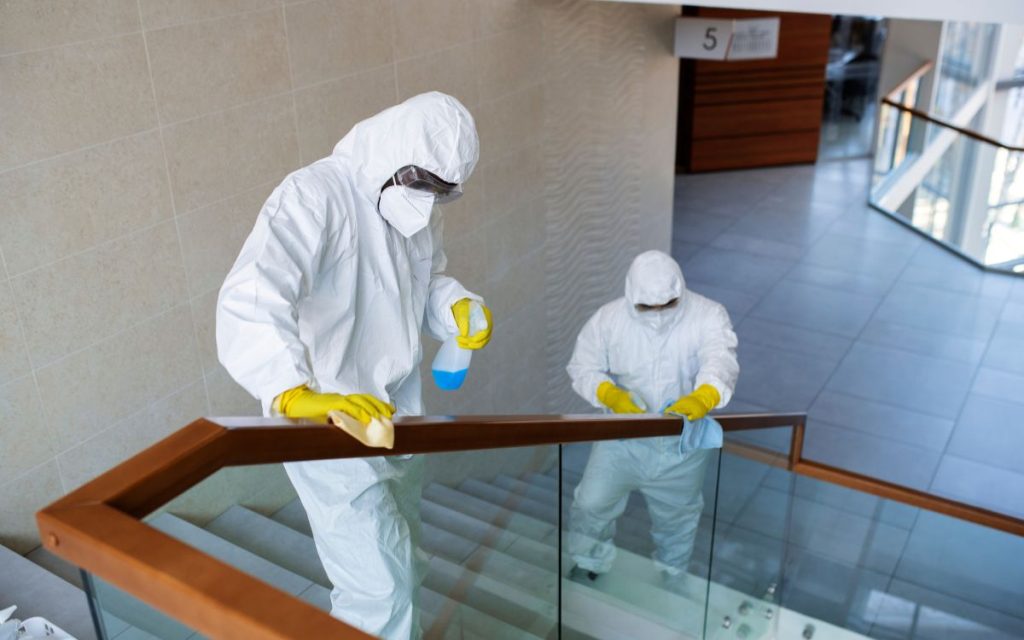
How to Simplify OHS Compliance
Meeting OHS Act regulations can feel overwhelming, but outsourcing your cleaning needs to a professional company is a simple solution. This allows you to focus on your core business operations while ensuring your workplace remains safe and compliant.
Here’s how a cleaning company can simplify compliance for you.
The Professional Advantage
A professional cleaning company takes on the full responsibility of staying up-to-date with complex OHS regulations. They use the right equipment, tools, and commercial-grade chemicals to meet the highest safety and hygiene standards. This includes everything from high-pressure washers to eco-friendly cleaning products.
Their staff are also highly trained to handle any job and meet client expectations. This skilled workforce understands proper handling of equipment and safe cleaning procedures.
A Tailored Approach
A professional service provider begins with a precise assessment of your specific cleaning requirements. They evaluate the intricacies of your space and your unique needs. Based on this, a tailored, bespoke cleaning plan is created. This plan selects the correct tools and methods to achieve the best results. This ensures every corner meets rigorous standards.
The process also includes continuous quality control. Regular inspections happen to maintain consistently high cleaning standards. This means any areas needing attention are swiftly addressed. They integrate your feedback to continuously improve the cleaning solutions provided. This helps you maintain a compliant and safe work environment.
What Happens When You Don’t Comply?
Ignoring OHS Act regulations carries serious risks for your business in South Africa. The consequences go beyond just a dirty workspace. They can impact your finances, your employees, and your company’s reputation.
The risks of non-compliance include:
- Fines and legal penalties: The Department of Labour can impose a hefty fine of up to R50,000 or a period of imprisonment not exceeding one year, or both a fine and imprisonment.
- Reduced staff morale and safety: A dirty and unsafe environment can lower employee morale and increase the risk of injuries.
- Decreased productivity: Poor hygiene can lead to more sick days, as germs spread easily in an unclean office. This directly impacts your company’s productivity and efficiency.
- Damage to reputation: A lack of cleanliness and safety can harm your company’s image. It sends a message that you don’t care about your staff or visitors. This can make it difficult to attract and keep top talent.
Complying with these laws protects your business from these serious consequences.
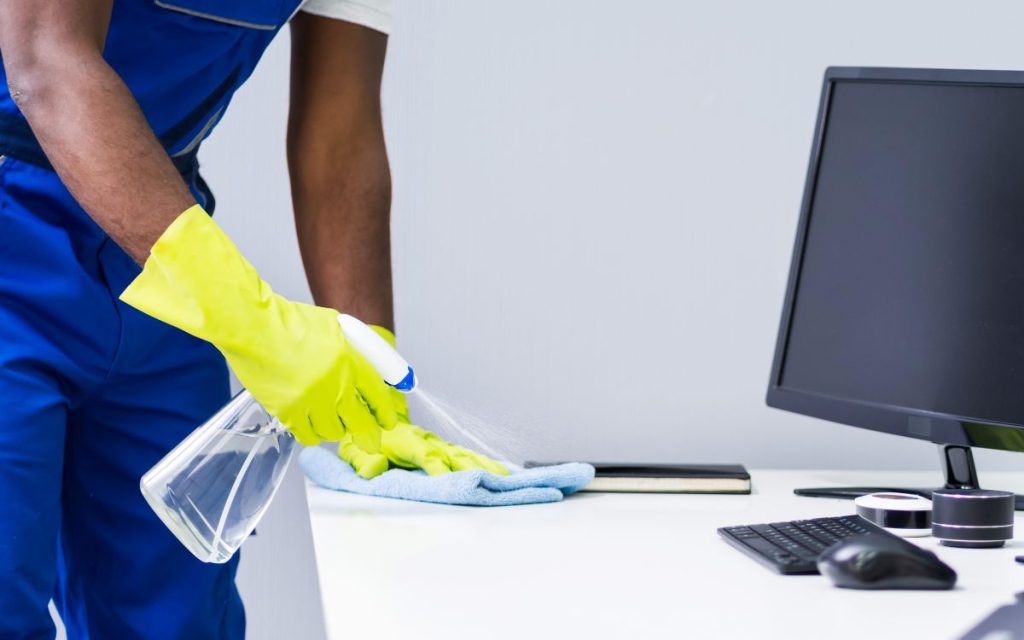
Your Partner in Compliance
The OHS Act regulations are critical for creating a safe and healthy workplace in South Africa. Partnering with a professional cleaning company is the most efficient way to ensure compliance. A professional service protects your staff and your business from the risks of non-compliance, including fines and reputational damage.
Get a free quote today for accredited cleaning training and professional cleaning services to ensure your workplace is safe, compliant, and pristine.


